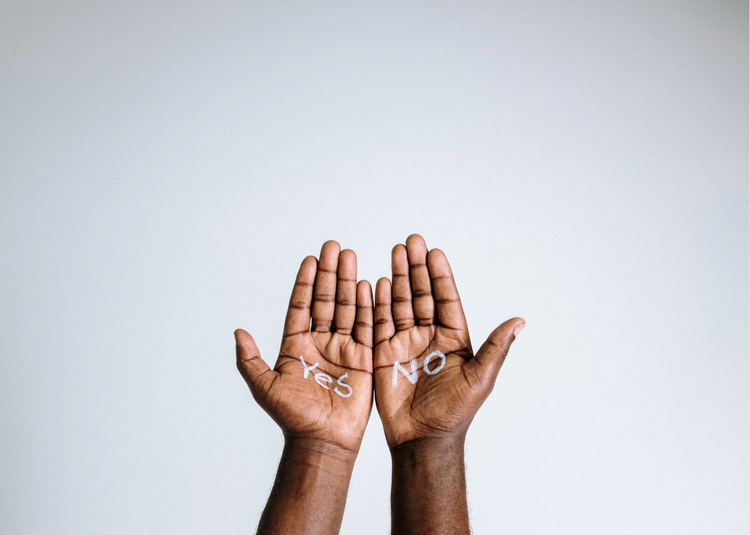Support Without Solving: Coaching Through Uncertainty

There’s this look. I can’t describe it exactly, but if you’ve coached people for a while, you know what I mean. It’s that foggy, slightly panicked stare someone gets when they’re in the thick of not-knowing. Not quite lost, not quite found. It’s a mix of “Should I cry?” and “Maybe I move to Portugal and open a bakery?” Or maybe both.
Ambiguity messes with your internal compass. Even highly capable folks start spinning when clarity disappears. They start questioning everything, including themselves. And when someone walks into a session carrying that much uncertainty, they’re not asking you to fix it. They’re asking you to hold it.
That’s what this is about: the messy, beautiful, uncomfortable art of holding space.
Uncertainty isn’t a failure state.
We’ve been conditioned to see not knowing as a problem. Like the minute someone says, “I feel stuck” or “I’m not sure what’s next,” we spring into action. Offer advice. Outline a next step. Try to help them land somewhere.
But sometimes? The most powerful thing we can do is stay still with them.
I’ve started telling clients, “What if there’s nothing wrong with not knowing?” And honestly, that simple reframe can take the heat out of the moment. Because the truth is, this in-between space is part of the process. It’s not a detour. It’s not wasted time. It’s the cocoon part—uncomfortable, gooey, but necessary.
And it deserves to be met with curiosity, not panic.
Your energy sets the tone.
If I walk into a session feeling rushed or wound up, my client will feel it. Even if I don’t say anything directly, the tension in my system leaks out. People are perceptive. They match the energy in the room. If I’m tight, they tighten. If I’m grounded, they begin to relax.
So before these sessions, I slow myself down. Just a few breaths. A reminder that I don’t need to fix anything today. That I can hold space without pushing for resolution.
And sometimes, what helps the most is simply not talking. Just letting silence breathe. That’s when the real stuff often surfaces. It’s hard at first, resisting the urge to jump in with something useful. But if I can tolerate the pause, so can they.
Ask wide-open questions, not productivity questions.
The impulse to help someone “figure it out” is strong. But in the early fog of uncertainty, linear questions can feel like pressure.
“What’s your next step?” might be too soon.
Instead, I offer questions like:
- “What do you think this season is trying to teach you?”
- “What’s been tugging at you lately, even if it’s still vague?”
- “If you could put clarity aside, what would you notice right now?”
These are questions that make space. They don’t demand answers. They invite reflection.
And honestly, even just being asked a different kind of question can be a relief. It reminds people that there’s nothing wrong with not having it all sorted yet.
Offer structure that feels gentle, not heavy.
People in uncertain places often crave some kind of anchor. But it’s a delicate balance. Too much structure and it becomes another thing to get right. Not enough, and they can feel like they’re drifting.
So I go soft. I’ll say something like, “If you’re up for it, maybe jot down a few moments this week when you feel really off—or really alive. You don’t need to analyze them. Just notice.”
No expectation. No gold star if they do it. Just an invitation to start paying attention.
That’s the goal here: awareness. Not achievement.
You’re not the guide. You’re the mirror.
This took me a while to learn. I used to think I had to offer insights, light the path, make meaning. But more often than not, people already have the beginnings of their own wisdom. They just can’t hear it over the noise.
So these days, I reflect. I name what I notice. I mirror back the shifts in their tone, the themes they’re circling, the moments they gloss over but maybe shouldn’t.
I’ll say, “You softened when you said that,” or “That’s the third time you’ve mentioned that idea—what’s there?”
It’s not flashy. But it’s honest. And it builds trust in their own inner compass.
Holding space in uncertain times is subtle work. It asks us to sit in discomfort without filling it, to show up with presence instead of plans, and to believe that clarity doesn’t need to be forced. It will come. Maybe not today, maybe not next week. But it will.
And when clients look back, they rarely remember the perfect framework or the clever metaphor you offered.
They remember how it felt to sit with you—unrushed, unjudged, and completely allowed to not know.
That’s the real container.
That’s what healing and clarity grow inside of.




